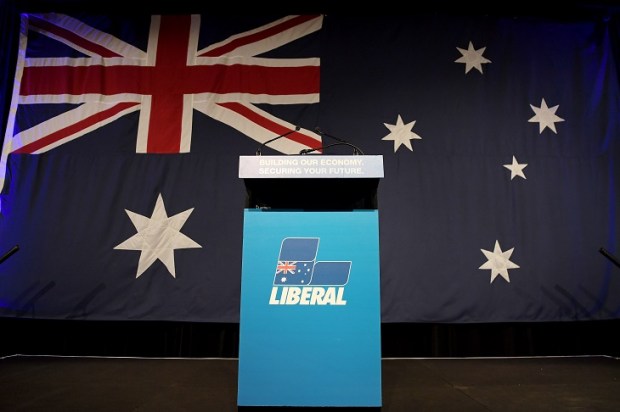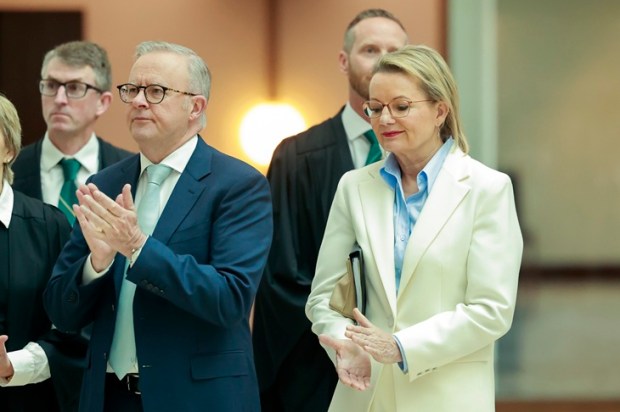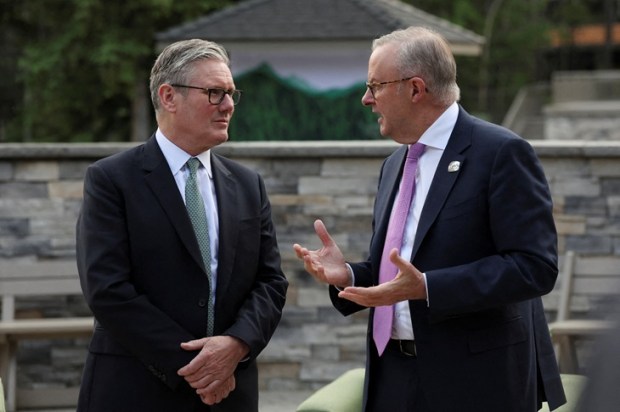I understand it’s a cost-of-living crisis, but I sacrificed one of my coffees and bought the Sunday Telegraph (don’t tell our Editor!) to see if there were any juicy insights from the campaign trail that I might have missed.
The question was going begging due to the unusual levels of boredom suffered by those tasked with following the election.
Having transcribed the debates between the Prime Minister and Leader of the Opposition, I can confidently say we are saddled with uncommonly ineloquent politicians who struggle because they are not speaking their own minds but rather the consensus of their respective party hive mind.
Rousing campaign speeches are not penned by a focus group and those who cannot find their own words should not speak at all, let alone reign over a nation. As a pair of leaders, I have come to envision Albanese and Dutton standing on the stage, muzzled as you might a dog, making incoherent growling noises at each other.
What should we report of that?
And then the two barked.
Nothing is happening, and if does happen, Dutton spends the afternoon apologising while Albo fabricates an alternate version of reality in which it didn’t happen.
After ten minutes blackening my fingers with newsprint, I tossed the paper in the recycling where it belongs.
I despise AI with every fibre of my being but even Grok has a better grasp of the news than MSM. You can ask X’s experimental personality for the top stories and it’ll churn out whatever’s trending. The high and mighty of the media world like to describe social media as the gutter, but what does the gutter collect when it rains except all the things discarded on the street?
Here, with the muck, accumulates the truth.
The collective opinion of Australia is that they are miserable, poor, divided, distrustful, in the process of being radicalised, ignorant of socialism, resurrecting historical hatreds to justify present grievances, and prepared to shrug their shoulders and vote for whichever party offers them cash up front and moral relief from the constant dogma of Western guilt.
Often, a nation’s voting public is a reflection of its leadership, or perhaps it is more fair to say the two live in symbiosis. A strong citizenry creates political clarity while a mass of indistinguishable nobodies in Canberra drags Australia down.
The most perceptive view of this political landscape was not found in a newspaper or on the lips of a chatbot harbouring delusions of sentience – I read it in a book sitting next to my laptop picked up for $5 at a cafe which closed its doors after 20 years thanks to a Teal council tearing up the road for a development it can’t afford.
The Downing Street Years, by Margaret Thatcher.
Most of you have probably read it, but you’ll forgive my generation playing catch-up. The only modern political history we were taught comprised half a page on Gough Whitlam described as the saviour of Australia by academics sobbing into the print.
Thatcher is a remarkably modern writer and, like Churchill whose words I read when feeling lost, she leaves the reader in no doubt of her opinion.
During the introduction, Thatcher describes the woeful state of UK politics, but I daresay she would repeat an identical passage were she to observe Australia in 2025.
Such a philosophy was explicitly advocated by the Labour Party. It glorified planning, regulation, controls, and subsidies.
It had a vision of the future: Britain as a democratic socialist society, third way between east European collectivism and American capitalism.
And there was a rough consistency between its principles and its policies – both tending towards the expansion of government – even if the pace of that change was not fast enough for its own Left.
The Tory Party was more ambivalent. At the level of principle, rhetorically, and in Opposition, it opposed these doctrines and preached the gospel of free enterprise with very little qualification.
Almost every post-war Tory victory had been won on slogans such as ‘Britain Strong and Free’ or ‘Set the People Free’.
But in the fine print of policy, and especially in government, the Tory Party merely pitched camp in the long march to the left.
It never tried seriously to reverse it. […] The result of this style of accommodationist politics, as my colleague Keith Joseph complained, was that post-war politics became a ‘socialist ratchet’ – Labour moved Britain towards more statism; the Tories stood pat; and the next Labour Government moved the country a little further left.
The Tories loosened the corset of socialism; they never removed it.
What she describes is the natural evolution of the uniparty. Labor and the Coalition, lacking the skill to properly fight each other, have entered a pact. They leave controversial topics off the table, robbing voters of the democratic process. No one was asked about renewable energy, mass migration, or compulsory super… All of these are to the benefit of donors, power brokers, and the future careers of a political class who see Canberra as an elevator to the private sector.
Everyone expects Labor to be greedy, unscrupulous sell-outs, but the Coalition’s decision to do the same can be viewed in only two ways: corruption or idiocy. Considering the knots its ministers tie themselves in attempting to explain obviously stupid policy, we may guess at the answer.
This dishonesty was sensed a long time ago by minor parties, but Australia’s high-trust relationship with Canberra assumed, wrongly, that the major parties were always acting in the public’s best interest. We’ll call it an early version of the keep us safe mentality.
Now Thatcher’s warning has been made obvious. This Age will be remembered as a mad time when the national leaders struggled to define biological sex, ignoring their sanity on account of activist feelings.
Thatcher knew the answer to a similar dilemma was not a Tory Party chasing after the socialists or unionists, begging at the door with a set of Labour-lite offerings and vague promises about prosperity.
As stated further in the text, ‘No theory of government was ever given a fairer test or a more prolonged experiment in a democratic country than democratic socialism received in Britain. Yet it was a miserable failure in every respect.’
We could argue that Woke-ism and its ‘politically correct’ predecessor have been given longer and failed more comprehensibly than democratic socialism.
Australia was one of the richest nations in the world with every possible gift of geography, history, culture, and a peaceful birth. We were blessed beyond all historical precedent. Yes, even the black armband enthusiasts cannot deny that no nation in human history has been offered a softer crib.
Our troubles are entirely the fault of political failure. Of bad policy. This will not be solved by weakness or short-cuts. It is structural.
It is no wonder the public turn up their noses at the Prime Minister and Opposition Leader opening their arms as economic saviours.
When Bandt does it, we revile, but his policies are a distilled version of Labor and the Liberal Party. If I were to pay the Greens a compliment, it would be to nod at their honesty. They want to steal private money and spend it on their vanity. It’s made clear on their website. The only way Bandt could be more honest would be to don a black cloak and scythe.
It has been interesting to watch the media change their tune this morning now that they know their super and unrealised capital gains will be stiffly taxed. They thought their personal wealth was safe from Labor if only they penned flattering headlines.
Instead, the suffering felt by small business owners and working families who have been sneered at by the media for years will be felt by them too.
The media speaks up in the dying days of the campaign for themselves, not for others.
Half a week of Liberal-friendly media might not be enough with early voting soaking up votes, but if we can get rid of Labor and push the Greens away from the throne, conservatives might be able to salvage Australia’s future.
They won’t get another chance. Not with the education system lying to our kids for eight hours a day during the first 25 years of their life. By the time they enter the workforce, degree in hand, their minds have been smashed into left-wing putty.
More than winning the election, the conservatives have to take back control of the entire cultural narrative or all those jokes about the Venezuela of the Pacific will ring true.
It’s a shame there are no Thatchers around to start the process.
Flat White is written by Alexandra Marshall. If you would like to support her work, shout her a coffee over at donor-box.

























